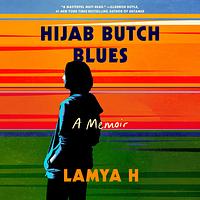Take a photo of a barcode or cover
adventurous
challenging
emotional
hopeful
informative
inspiring
reflective
medium-paced
So engaging. I couldn't put it down!
challenging
emotional
hopeful
inspiring
reflective
sad
fast-paced
emotional
hopeful
inspiring
reflective
medium-paced
emotional
reflective
slow-paced
hopeful
informative
reflective
medium-paced
Wherever they are now, I hope Lamya is happy. A much needed read, full of love and all the struggles of containing multitudes in a society that hate so much of who you are.
Highly recommended
Highly recommended
Read 80% and did not feel I needed to finish it to get the point. It was at times hard to read and understand and as a non religious person. I fully expected the author to confront the hypocrisy of organized religion and queerness, but this was not addressed. I
Could not find any sense of who the author is and why they maintained their connection to their faith. This fell totally flat.
Could not find any sense of who the author is and why they maintained their connection to their faith. This fell totally flat.
challenging
emotional
hopeful
informative
inspiring
medium-paced
emotional
hopeful
reflective
I had started reading this book before and didn't get more than 20% into it. I'm glad I pushed through and finished it this time.
This book is incredibly introspective. To be honest, I was unsure what the intersections of queer as Muslim experiences would be, and this book gave me some insight into it. For Lamya, religion and queerness are intrinsically linked, and one can't exist without the other.
What feels most unique about this book is how each chapter seems to overlay a story from the Quran onto some aspect of queer life. In that way it felt very meditative, and it was great to hear about the author's explorations of her own connection to religion. I found the investigation of God as genderqueer really interesting - if God is in fact everything, then why would we use a singular, gendered imagery and pronoun to describe Them? It's both a queering of religion, but also simply recognizes the queerness that already exists in it.
This book is incredibly introspective. To be honest, I was unsure what the intersections of queer as Muslim experiences would be, and this book gave me some insight into it. For Lamya, religion and queerness are intrinsically linked, and one can't exist without the other.
What feels most unique about this book is how each chapter seems to overlay a story from the Quran onto some aspect of queer life. In that way it felt very meditative, and it was great to hear about the author's explorations of her own connection to religion. I found the investigation of God as genderqueer really interesting - if God is in fact everything, then why would we use a singular, gendered imagery and pronoun to describe Them? It's both a queering of religion, but also simply recognizes the queerness that already exists in it.
emotional
hopeful
reflective
medium-paced





